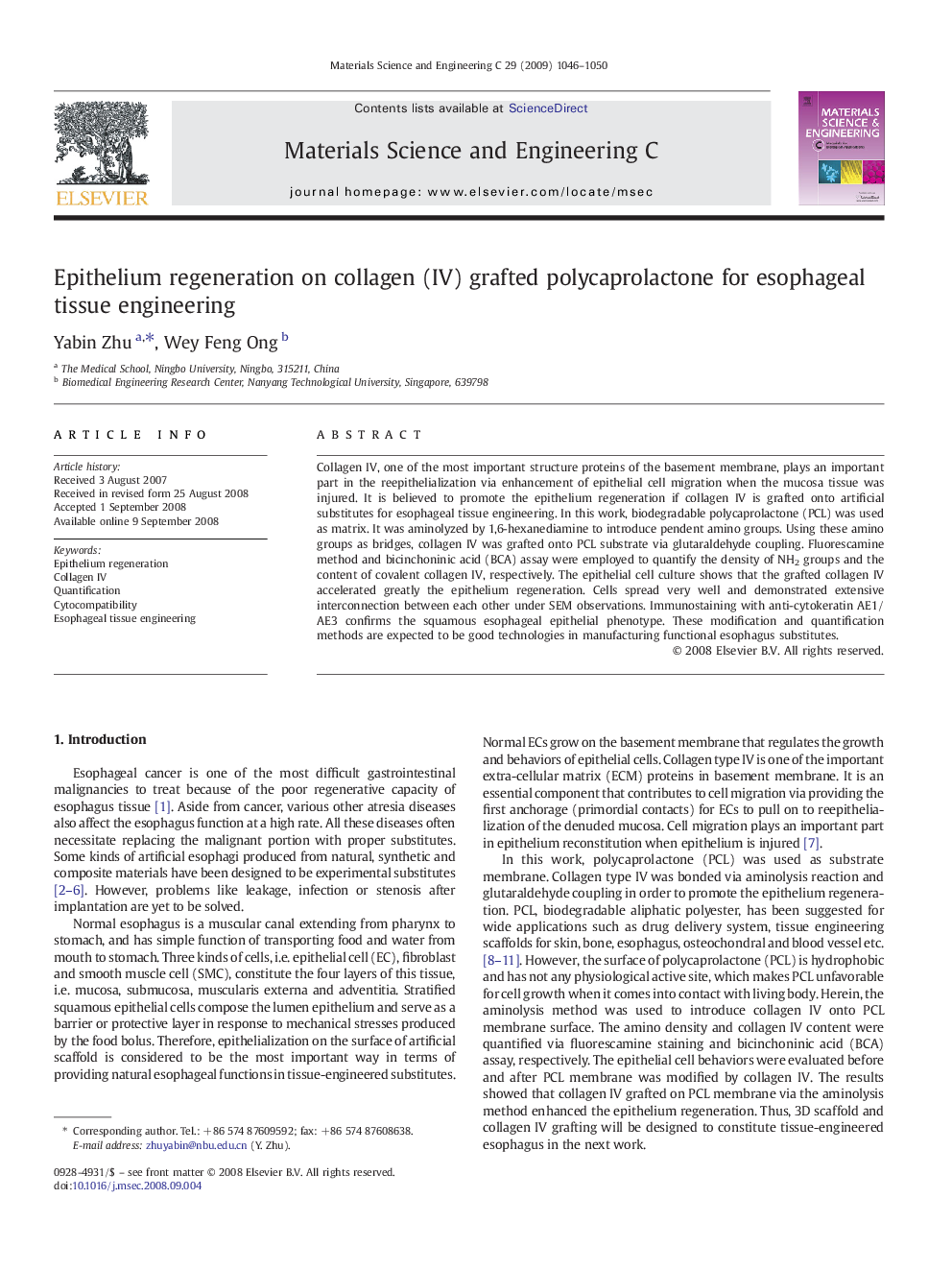| Article ID | Journal | Published Year | Pages | File Type |
|---|---|---|---|---|
| 1430190 | Materials Science and Engineering: C | 2009 | 5 Pages |
Collagen IV, one of the most important structure proteins of the basement membrane, plays an important part in the reepithelialization via enhancement of epithelial cell migration when the mucosa tissue was injured. It is believed to promote the epithelium regeneration if collagen IV is grafted onto artificial substitutes for esophageal tissue engineering. In this work, biodegradable polycaprolactone (PCL) was used as matrix. It was aminolyzed by 1,6-hexanediamine to introduce pendent amino groups. Using these amino groups as bridges, collagen IV was grafted onto PCL substrate via glutaraldehyde coupling. Fluorescamine method and bicinchoninic acid (BCA) assay were employed to quantify the density of NH2 groups and the content of covalent collagen IV, respectively. The epithelial cell culture shows that the grafted collagen IV accelerated greatly the epithelium regeneration. Cells spread very well and demonstrated extensive interconnection between each other under SEM observations. Immunostaining with anti-cytokeratin AE1/AE3 confirms the squamous esophageal epithelial phenotype. These modification and quantification methods are expected to be good technologies in manufacturing functional esophagus substitutes.
